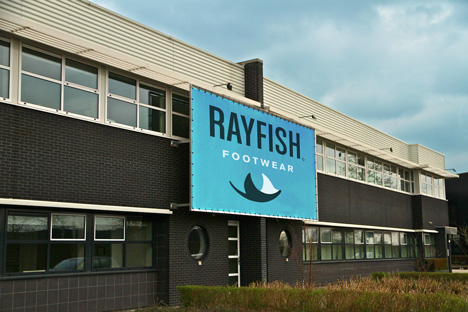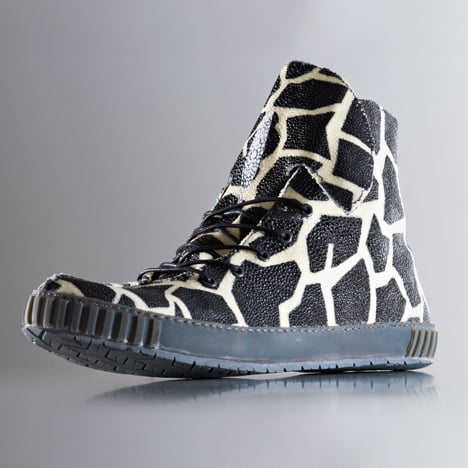
Bio-Customized Sneakers by Rayfish
A footwear company in Thailand says it has developed a way to bio-engineer stingray skin to produce customised trainers - although the claim has been met with scepticism from scientists and outrage from animal rights campaigners.
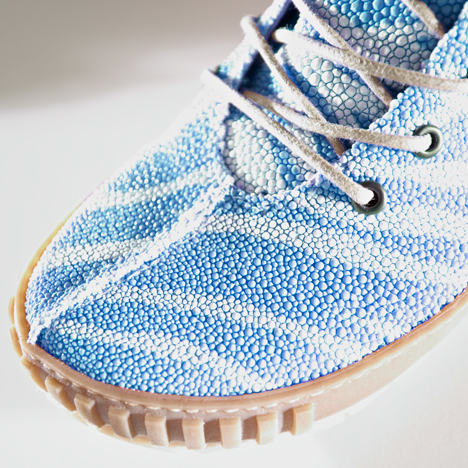
Bangkok-based Rayfish announced last week that it had pioneered a process of "bio-customisation" that allowed customers to design patterns to be grown on genetically modified stingrays.
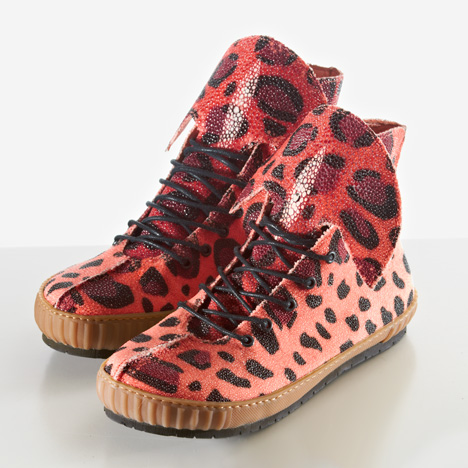
Yet Utah State University biologist Randy Lewis told the Huffington Post: "To the best of my knowledge, there is no way to do what they claim both in terms of the colors, as many of those colors on their website have no way to be expressed in the skin, and the ability to completely control the pattern that they imply has not been achieved for any animal."
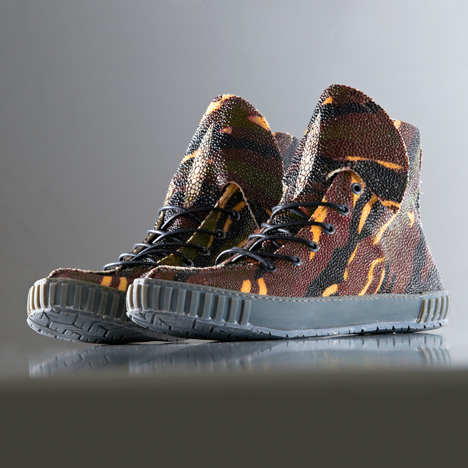
David Edwards, a professor of Bioengineering at Harvard University bioengineering professor David Edwards told British news website MailOnline: "You're right to question the claims. One suspects they are playing with genetics, if they are doing anything at all, and claiming an understanding they don't possess. The ethics of this, not to say the legality, are other issues at least disturbing."
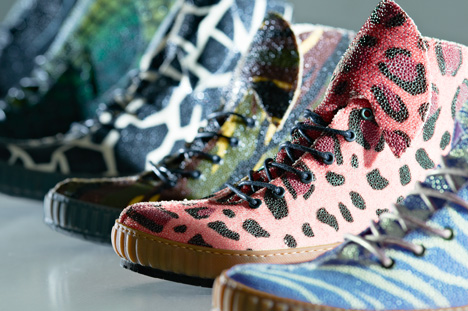
The same MailOnline story quoted a spokesperson from animal rights charity PETA: 'The idea of breeding and killing neon-patterned stingrays sounds like something out of a horror film."
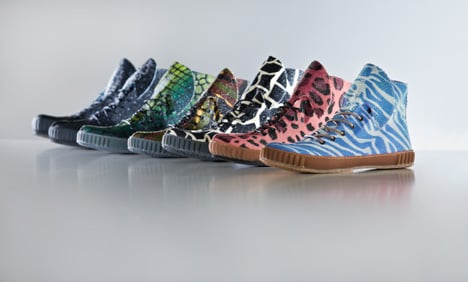
Rayfish sneakers currently cost between $14,800 to $16,200 per pair "depending on your shoe size and the complexity of the desired pattern". However the company claims that the price will drop to around $1,800 once regular production starts later this year.
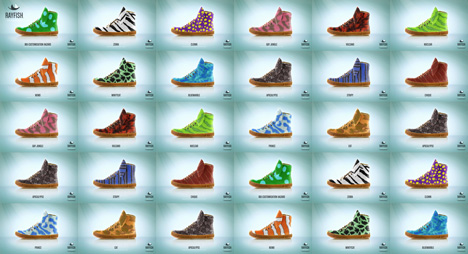
The price includes "bio-customization of a pair of stingrays, growing your shoes to maturity, and shipping them to any address on the planet."
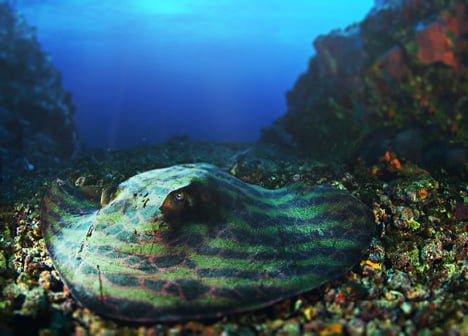
Rayfish say their stingrays are humanely reared in aquaculture tanks, where they successfully reared their first bio-customised skin last year. Two rays are required for each pair of shoes in accordance with the company's "one fish, one shoe" principle.
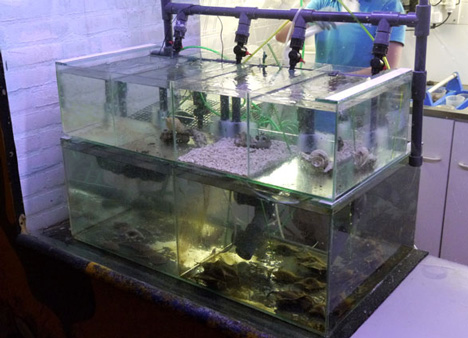
Here's the original press release from Rayfish:
Rayfish Footwear Grows Bio-Customized Sneakers
Transgenic stingray leather used to create uniquely personalized product.
BANGKOK – May 25, 2012
Thailand-based company Rayfish Footwear Inc. has pioneered the process of "bio-customization", a groundbreaking concept in personalized consumer products. Using coloration and patterning genes from existing animal species, engineers at Rayfish Footwear produce stingray leather with a near-infinite variety of naturally grown designs. Customers visiting the company’s website Rayfish.com can design a pattern to be grown on a transgenic stingray, which will subsequently be transformed into one-of-a-kind stingray leather sneaker at the company’s Chon Buri facility.
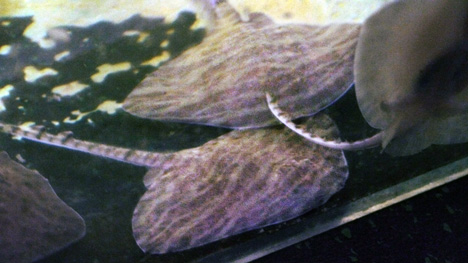
With their unparalleled degree of customization – no two pairs are alike, even at a genetic level – these shoes should appeal to a diverse group of sneaker lovers. Incorporating stingray leather, one of the most durable kinds of leather, these shoes are ready for the street with hand-stitched details, thick laces, and sturdy soles. Rayfish Footwear combines modern genetic technologies with Thai craftsmanship.
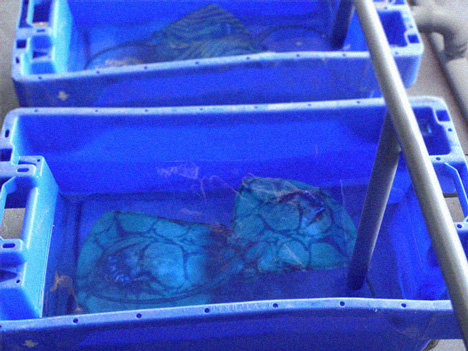
From Rayfish Footwear CEO Raymond Ong: "I saw an opportunity for innovation while keeping true to my family’s long tradition of producing stingray leather goods. After a decade of developing this technology in cooperation with a team of bioengineers, I am proud to bring the world’s first bio-customized sneakers to the general public."
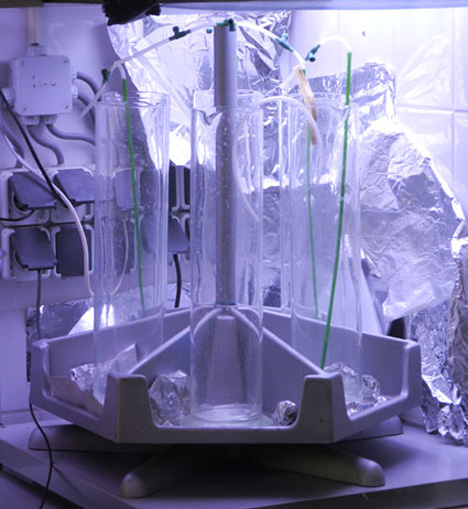
Currently, Rayfish sneakers are only available via the design contest running at the company’s website. Winning designers will receive their shoes once the rays have grown to maturity. General production will begin in late 2012 as the technology will be scaled up to commercial levels.
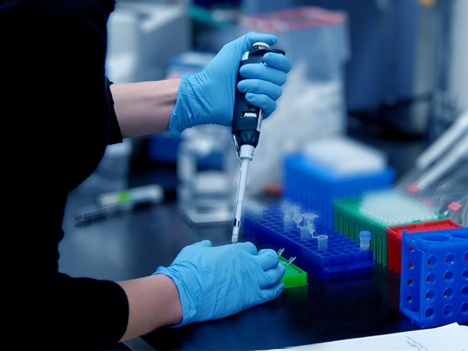
Rayfish stingrays live in specially modified aquaculture tanks that mimic their natural environment. They are raised in a humane manner to ensure the most accurate, vibrant expression of their genetics. Rayfish Footwear opposes the harvesting of rays from the wild, and its committed to ocean conservation.
